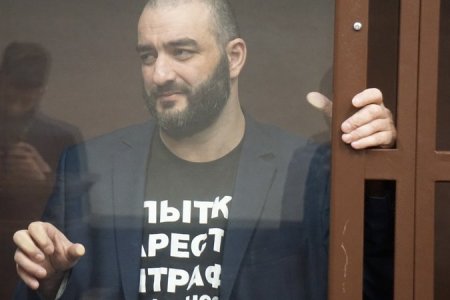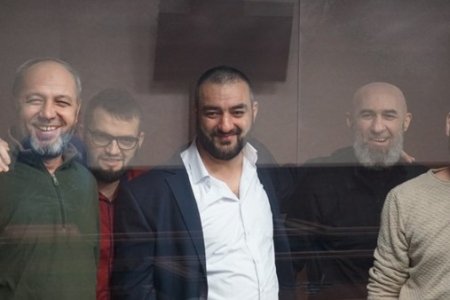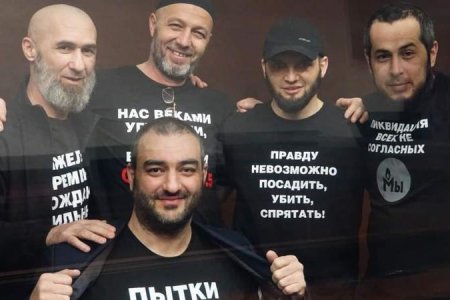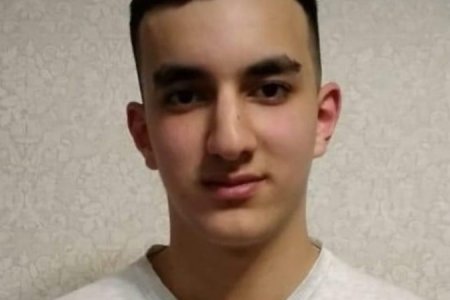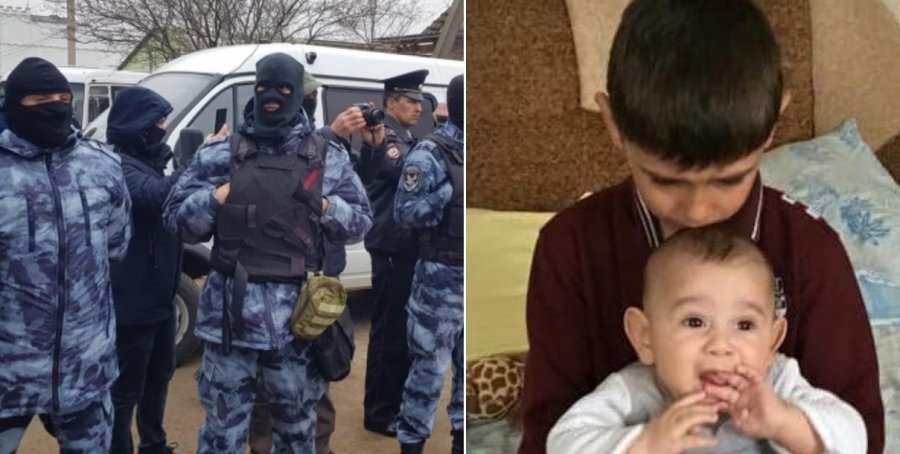
The Kremlin has a long track record of using, if not manufacturing, terrorist attacks for its own ends, and the attack on 22 March left many assuming that the US warning of an imminent terrorist attack had been ignored quite deliberately. That is beginning to seem unlikely given the chaos around Moscow’s narrative about the attack on Crocus City Hall and the sheer absurdity of Russian leader Vladimir Putin’s claim that the Islamic State was somehow ‘commissioned’ by Kyiv.
The forced conclusion that the Russian authorities and FSB [security service] really did fail so spectacularly is certainly shocking, but not especially surprising. You need only observe the FSB’s activities in occupied Crimea to understand that fighting real terrorism is not something they view as part of their scope. Why bother when you can notch up ‘good anti-terrorism statistics’ by fabricating charges against Crimean Tatar or other Ukrainian civic journalists or activists? With convictions and long sentences guaranteed, however absurd the charges, FSB officers can expect, at very least, an easy workload, while often also promotion or bonuses.
Crimea had no history of terrorism until Russia’s invasion and annexation in February 2014. In fact, it continued to have no actual terrorism, however the number of Crimeans arrested and convicted on supposed ‘terrorism’ or ‘sabotage’ charges rose dramatically. The methods used to obtain such convictions are almost always the same, with a major role played by torture and ‘anonymous witnesses’, as well as by ‘judges’ willing to turn a blind eye to flagrant irregularities. The victims are generally targeted because of their opposition to Russian occupation and pro-Ukrainian position, or their involvement as civic activists or journalists in the Crimean Tatar human rights movement.
Torture all-powerful
Russia’s FSB and Investigative Committee have used torture (beatings, electric currents attached to sensitive parts of the body, mock executions, as well as threats against a person’s family) to obtain ‘confessions’ since 2014. On only one occasion, when the victim’s lawyer and human rights groups were able to prove that Serhiy Lytvynov’s alleged victims and their purported addresses did not exist, did the prosecution withdraw the charges – only to concoct new ones equally absurd. In all other cases, the courts have ignored the fact that political prisoners’ retracted such ‘confessions’ as soon as allowed to see a lawyer. They have, in fact, based convictions on such ‘confessions’ even where these were proven in court by the defence to clash with hard facts.
The charges against Crimean Tatar Mejlis leader Nariman Dzhelyal and two cousins, Asan Akhtemov and Aziz Akhtemov, were made much more serious after the Akhtemovs found the courage to ignore FSB threats and describe the torture used to extract their ‘confessions’.
Raim Aivazov also refused to be intimidated by the FSB and told the court of the torture he had been subjected to. The court ignored not only Aivazov’s own retraction, but also clear proof that the FSB had doctored the ‘testimony’ of one of their anonymous witnesses.
‘Terrorism’ charges by quota
Russia unleashed its worst conveyor belt of repression against Crimean Tatars and other Ukrainian Muslims in January 2015. Since 2017, it has been fairly openly using arrests on fake ‘terrorism’ charges as a weapon against the Crimean Solidarity human rights initiative.
27 March marks the fifth anniversary of Russia’s worst attack to date on the Crimean Tatar human rights movement, with 25 civic activists and journalists arrested. Two men, including the above-mentioned Raim Aivazov, were arrested later than the others, probably because 25 men, and five cloned trials (each of five of the men) were required.
The 25 men were all charged and later convicted of ‘terrorism’, although none was accused of any recognizable crime. They were accused only of ‘involvement’ in the Hizb ut-Tahrir movement, a peaceful transnational Muslim organization which is legal in Ukraine, but which Russia’s supreme court declared ‘terrorist’ in a very secretive 2003 ruling. That ruling was likely to have been politically motivated, with the label making it easier for Russia to forcibly return refugees to Uzbekistan where they faced religious persecution. Five of the men, including Aivazov and well-known civic journalist Remzi Bekirov, were accused of the more serious charge of organizing a Hizb ut-Tahrir group’ under Article 205.5 § 1 of Russia’s criminal code, the others with involvement in such an alleged group (Article 205.5 § 2). In March 2020, all 25 men were also charged, under Article 278, with “planning a violent seizure of power and change in Russia’s constitutional order”.
Fake evidence
The charges against the 25 Crimean Tatar political prisoners were based on illicitly taped conversations dating back to 2016. These were on religious and political topics, as well as about courage, and in no way justified ‘terrorism’ charges. Had they done so, there would surely be legitimate questions as to why the FSB sat one such ‘evidence’ for three years before staging the armed arrests. Transcripts with mistakes that suited the prosecution’s charges were sent to FSB-loyal ‘experts’ who, as always, provided the ‘assessment’ demanded of them.
So too did the ‘anonymous witnesses’ who only ever ‘remembered’ the details in the indictment and may have never even known the men.
Russia’s unwarranted use of ‘secret witnesses’, the clear bias from the courts and other violations of the men’s right to a fair trial were all condemned by the UN Secretary General in his 2021 report on occupied Crimea. None of the criticism was heeded, and, in fact, the FSB and authorities have only become more brazen.
‘Trials’
Despite the absurd charges and totally flawed evidence, five separate panels of judges from the Southern District Military Court convicted all of the men, handing down sentences from 12 to 19 years. In two of the cases, those of 60-year-old Dzhemil Gafarov and 63-year-old Servet Gaziev, these were clear death sentences due to medical conditions that, at least in Gafarov’s case, should have prevented him ever being placed in detention.
Dzhemil Gafarov died in a Russian SIZO, or remand prison, on 10 February 2023. A Russian court of appeal later ‘upheld his sentence’.
Dzhemil Gafarov; Servet Gaziev; Alim Karimov, Seiran Murtaza and Erfan Osmanov
Remzi Bekirov; Raim Aivazov; Riza Izetov; Fahrhod Bazarov and Shaban Umerov
Akim Bekirov; Eskender Suleimanov; Seitveli Seitabdiev, Rustem Seitkhalilov and Asan Yanikov
Osman Arifmemetov; Rustem Sheikhaliev Ruslan Suleimanov; Enver Ametov and Yawar Muyedinov
Bilyal Adilov; Tofik Abdulgaziev; Vladlen Abdulkadyrov; Izet Abdullayev; and Medzhit Abdurakhmanov
See also: Nariman Dzhelyal, Asan Akhtemov, Aziz Akhtemov
Sentenced to 17 years in Siberia for opposing Russia's invasion and affirming that Crimea is Ukraine
